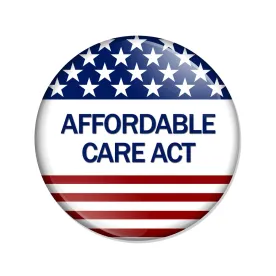“Cost-sharing reductions” (CSRs) are one of the primary mechanisms under the Affordable Care Act (ACA) to make health coverage affordable for consumers. CSRs are government payments to insurance companies for the purpose of reducing out-of-pocket costs (e.g., copayments and deductibles) for individuals who purchase insurance coverage through the healthcare exchanges established under the ACA. In 2016, over half of ACA exchange enrollees benefited in some manner from CSRs, for which the government paid out over $7 billion.
In 2014, the GOP-led U.S. House of Representatives filed an action against the Obama Administration challenging the legal authority of the Department of Health and Human Services to make CSR payments in the absence of congressional appropriations of the necessary funds. While the Obama Administration contended that Congress had indeed appropriated the funding for CSRs, a federal district court in May 2016 ruled in favor of the House Republicans, enjoining further CSR payments until a valid appropriation was in place. However, that same court stayed the injunction pending the outcome of an appeal. The Trump Administration is currently weighing whether or not to move forward with the appeal of the case, now known as House v. Price. In addition, the Trump Administration has floated the idea that it may choose not to continue making CSR payments unless and until Congress has explicitly appropriated the requisite funds, the prospects for which are dubious.
If the Department of Health and Human Services ceases paying CSRs, insurance markets could be thrown into chaos as exchange-participating insurance companies lose an important source of income and exchange enrollees are unable to satisfy their copayment and deductible responsibilities. To avoid the financial implications associated with the loss of CSR payments, insurance companies that currently participate in the exchanges may cease to participate in order to avoid the financial strain that would come with the termination of CSR subsidies. Alternatively, participating insurance companies may decide to continue their participation but raise their premiums in order to compensate for the lost CSR revenue. Obviously, if insurance companies elect to discontinue participation in the exchanges, access to individual coverage may suffer dramatically – especially in those states where there is only one participating insurance plan. If insurance companies take the alternative route and raise their premiums in order to stay on the exchanges, many analysts are concerned that the increased premiums could drive out of the exchange marketplace healthy individuals who earn too much to receive tax credits under the ACA.
As evidence that the above possibilities and concerns are not merely hypothetical, in Anthem, Inc.’s First Quarter Earnings Call on April 26, 2017, Joseph Swedish, CEO of Anthem, Inc., said that if the uncertainty over funding of CSR subsidies is not resolved by early June, Anthem will be forced to consider adjusting its exchange plan rates, changing its product offerings or exiting certain markets entirely. If Anthem were to decide to continue its participation in the exchange marketplace notwithstanding the fact that the CSR subsidies are discontinued, Mr. Swedish projected that Anthem premium rates could go up 20% next year.
Whether or not the Administration ultimately pulls the plug on CSRs, the continued uncertainty around this issue could have a measurable impact on the individual plan marketplace that has grown considerably as a result of the ACA and the exchanges. Such impact may reveal itself sooner rather than later because health insurance companies generally are required to make decisions about 2018 market participation during the first half of 2017 – hence Anthem’s statements that its decisions regarding its continued participation in the exchanges will be made in early June.





 />i
/>i

